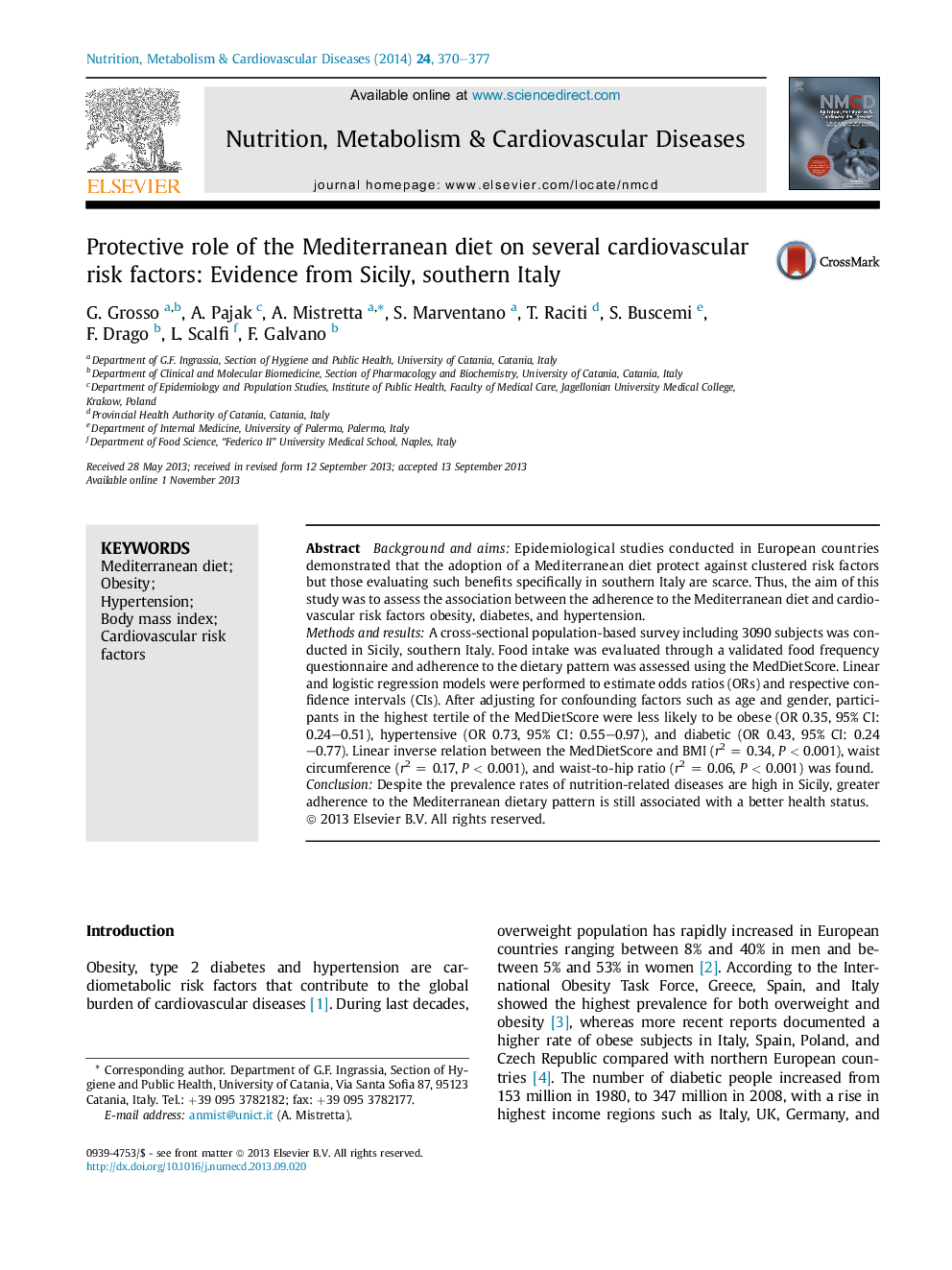| Article ID | Journal | Published Year | Pages | File Type |
|---|---|---|---|---|
| 5996438 | Nutrition, Metabolism and Cardiovascular Diseases | 2014 | 8 Pages |
Background and aimsEpidemiological studies conducted in European countries demonstrated that the adoption of a Mediterranean diet protect against clustered risk factors but those evaluating such benefits specifically in southern Italy are scarce. Thus, the aim of this study was to assess the association between the adherence to the Mediterranean diet and cardiovascular risk factors obesity, diabetes, and hypertension.Methods and resultsA cross-sectional population-based survey including 3090 subjects was conducted in Sicily, southern Italy. Food intake was evaluated through a validated food frequency questionnaire and adherence to the dietary pattern was assessed using the MedDietScore. Linear and logistic regression models were performed to estimate odds ratios (ORs) and respective confidence intervals (CIs). After adjusting for confounding factors such as age and gender, participants in the highest tertile of the MedDietScore were less likely to be obese (OR 0.35, 95% CI: 0.24-0.51), hypertensive (OR 0.73, 95% CI: 0.55-0.97), and diabetic (OR 0.43, 95% CI: 0.24-0.77). Linear inverse relation between the MedDietScore and BMI (r2Â =Â 0.34, PÂ <Â 0.001), waist circumference (r2Â =Â 0.17, PÂ <Â 0.001), and waist-to-hip ratio (r2Â =Â 0.06, PÂ <Â 0.001) was found.ConclusionDespite the prevalence rates of nutrition-related diseases are high in Sicily, greater adherence to the Mediterranean dietary pattern is still associated with a better health status.
